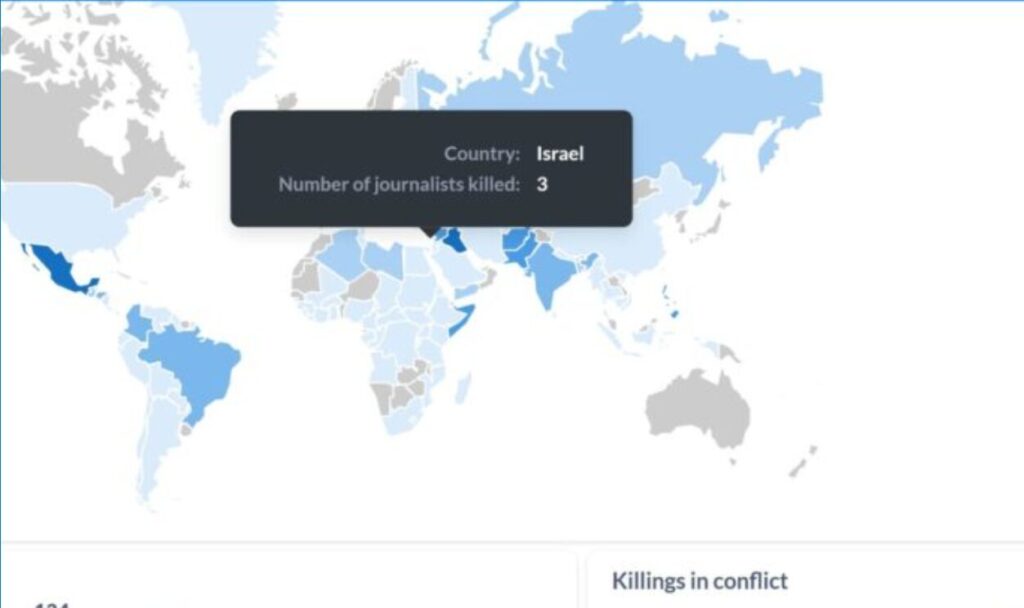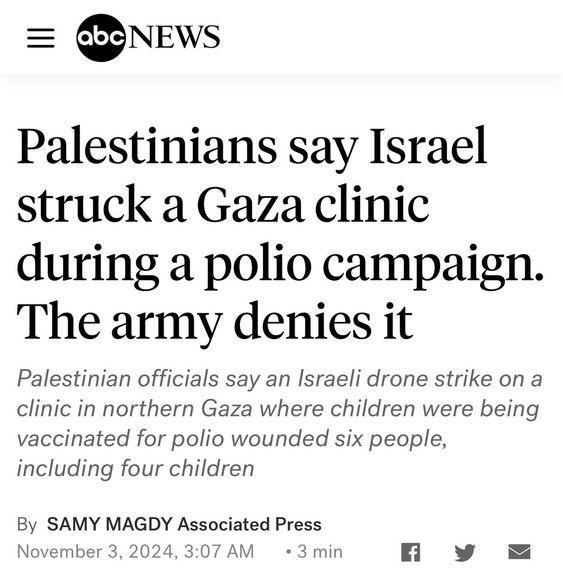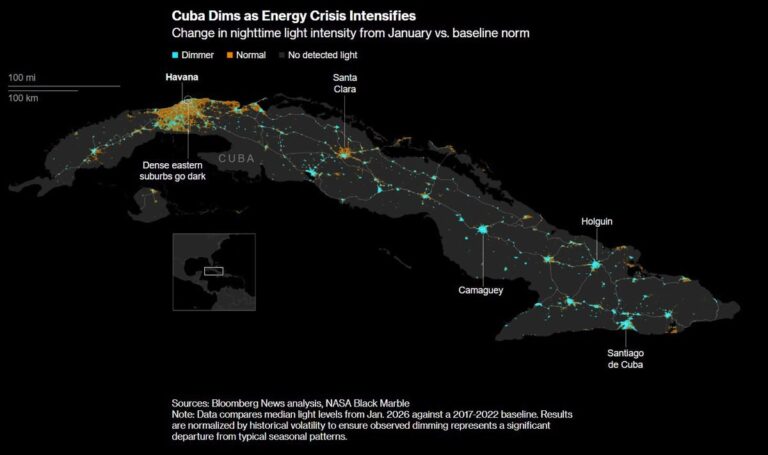
He was just singing in the street, happy with the end of this genocide. And now he’s gone.
Aljafarawi’s death comes as the current ceasefire in Gaza has held for a third day, ahead of an expected hostage-prisoner exchange. In the deadliest-ever conflict for journalists, more than 270 media workers have now been killed in Gaza since the start of Israel’s war in October 2023. Al Jazeera
Honestly, I lived in fear for every second, especially after hearing what the Israeli occupation was saying about me. I was living life second to second, not knowing what the next second would bring. – Journalist, Saleh Al-Jafarawi
Journalist Saleh Al-Jafarawi was kidnapped by Israeli backed gangs in Gaza City they fired 7 bullets and killed him while his only weapon was his camera.
He was smeared and targeted for two years during the genocide.
May his memory be blessed. pic.twitter.com/WwDG0B96XV
— Suppressed News. (@SuppressedNws1) October 12, 2025

Palestinian artist: Khaled Hourani. OBJECTS IN MIRROR ARE CLOSER THAN THEY APPEAR
The UK is detaining journalists for their coverage of Gaza!

Shireen Abu Akleh was killed before October 7th by the Israelis, so she’s not on that list.
“Media organizations are not doing their duty towards fellow journalists in Palestine when they are targeted and killed.”
The failure to hold Israel to account for killing Shireen Abu Akleh has enabled “a massacre of journalists.” AJ+ Managing Director @Dima_Khatib explains. pic.twitter.com/w4sUPjMkIT — AJ+ (@ajplus) June 11, 2025
Updated on October 12, 2025. First updated on June 11. 2025
Al Jazeera has published the names of every journalist killed since October 7th. 231 Palestinian journalists have been slaughtered in Gaza. A whole generation of reporters was wiped out while many of their colleagues in the West shrugged. Barry Malone
It’s also very important to point out that many, if not most, of these journalists were killed along with their entire families. Their spouses and children were murdered mercilessly.
Remember the little girl walking through the fire? Both the paramedic and journalist who saved her were both killed in the same airstrike.


Zionism Observer: That number is horrific, but it is also an undercount. A more comprehensive database can be found at http://StopMurderingJournalists.com.

First posted on January 5. 2025

We passed a year of Israel’s genocide of Palestinians in Gaza and the West Bank, and in recent weeks, we saw the same genocidal practice of Israel in Lebanon. However, they cannot claim any Israeli hostages there. When UNESCO yesterday published a report on the killing of journalists worldwide, you would expect Israel’s world record in repression and killing of journalists to be at least mentioned in their press release.
ONLY ONE SIDE TARGETS JOURNALISTS pic.twitter.com/RZkC3KRnTR
— Sulaiman Ahmed (@ShaykhSulaiman) January 4, 2025
The burning vehicle in this footage is the broadcast van of Al-Quds Today TV.
The person screaming whilst filming is the brother of one of the five journalists who was in the van and burnt alive.
Shame on every Western journalist who didn’t cover this. pic.twitter.com/jYbC7fC5Ez
— Khalissee (@Kahlissee) December 27, 2024
The Middle East Editor of BBC News previously worked as “news editor” for US State Department.
While in post he was informed he was actually working for CIA + was “absolutely thrilled” about it.
For decades, MI5 had to approve every journalist the BBC hired. May still be case. https://t.co/fsJUyQLq76
— Matt Kennard (@kennardmatt) December 28, 2024
Tragic End in Jenin: Journalist Al-Sabbagh Killed by Snipers
Palestinian journalist Shatha Al-Sabbagh was killed in Jenin Camp, northern West Bank, on Saturday, December 28, 2024. Shatha, 21, was carrying her sister’s children on her way to a nearby grocery store in a fully lit… pic.twitter.com/2UdAvL9pLn
— صحفيات بلا قيود Women Journalists without Chains (@WJWCorg) December 30, 2024
When Iran targets an Italian journalist and throws them in jail, we get headlines and reporting.
When Israel murders hundreds of Palestinian journalists, we get fucking *crickets*. https://t.co/KZsS0ViTnK
— Jenny Frecklington-Jones OnBlueSkySocialAlso (@JonesHowdareyou) December 27, 2024
Telegraph journalist faces ‘Kafkaesque’ investigation over alleged hate crime
Allison Pearson reveals how police officers called at her home on Remembrance Sunday to tell her of an inquiry into a year-old social media post.
Zionist influence on governing politicians put journalists, activists, nurses, and doctors with no borders and ordinary citizens using their right to protest risk jail for simply protesting a genocide, hurting the feelings of Jewish citizens of Apartheid State Israel as fascism creeps in on what we believe to be Western democracies as USA, UK, Germany, and France.
Wikipedia: The killing of journalists in the Israel–Hamas war, along with other acts of violence against journalists, marks the deadliest period for journalists in the Israeli–Palestinian conflict since 1992 and the deadliest conflict for journalists in the 21st century.[1] As of September 2024, the Committee to Protect Journalists counted 116 journalists who were killed (111 Palestinian, 2 Israeli, and 3 Lebanese),[2] and the International Federation of Journalists counted 134 journalists and media workers who were killed (127 Palestinian, 4 Israeli and 3 Lebanese)[3] A July 2024 count by the Gaza government media office placed the number of Palestinian journalists killed at 160.[4][5]

Journalism 101: If someone says it’s raining, and another person says it’s dry, it’s not your job to quote them both. Your job is to look out of the fucking window and find out which is true.

How Netanyahu leveraged leaked and false “Hamas documents” https://t.co/OODe63hTjC
— Haaretz.com (@haaretzcom) November 3, 2024
Why no mention of Israel, which is the single country most responsible for killing journalists? https://t.co/rVbj4oisVe pic.twitter.com/m5giYLL5zM
— Assal Rad (@AssalRad) November 2, 2024
Haaretz Editorial: If It Looks Like Ethnic Cleansing, It Probably Is
I’m speechless but holy shit!!!
Watch this to learn how the Zionists manufactured consent to destroy Baalbek..
Devil work isrg.. pic.twitter.com/CMNHSJHsqh — Abier (@abierkhatib) November 2, 2024
10/ Both Israel and Palestine have signed the 1972 World Heritage Convention which obliges State parties not to take deliberate measures that might damage the cultural or natural heritage situated on territory of other state parties to the convention. https://t.co/g7X6M1lY1h << pic.twitter.com/fxWNdfmcys
— Emek Shaveh (@EmekShaveh) August 14, 2024
UNESCO Press release November 2. 2024
85% of journalist killings remain unpunished worldwide (UNESCO report)
On the International Day to End Impunity for Crimes Against Journalists, UNESCO calls on all states to act on their commitments to end impunity for killing journalists. According to a new UNESCO report, the impunity level is still shockingly high, at 85%, down only 4 points in six years.

In 2022 and 2023, a journalist was killed every four days simply for doing their vital job to pursue truth. In most of these cases, no one will ever be held accountable. I call upon all our Member States to do more to ensure these crimes never go unpunished. Prosecuting and convicting the perpetrators is a significant lever to prevent future attacks on journalists.

Audrey Azoulay UNESCO Director-General
[Jerusalem Post: 50 Influential Jews: André and Audrey Azoulay – No. 30]
UNESCO’s new report notes the persistence of a very high rate of impunity for the killings of journalists: 85% of all killings recorded by the Organization since 2006 are considered unresolved. While UNESCO notes an improving trend – the rate was 89% six years ago and 95% twelve years ago – States must significantly increase their efforts to deter new crimes against journalists.]
Killings of women journalists highest in 7 years
In the biennium covered by the UNESCO report (2022-2023), a total of 162 journalists were killed. Almost half of the deaths took place in countries experiencing armed conflict, compared with 38% in the previous two years (2020-2021).
In other countries, most journalists were killed for covering organized crime and corruption or while reporting on public demonstrations. The report moreover raises the alarming fact that the number of female journalists killed is at its highest level since 2017, with 14 killed.
New UNESCO tools for prevention and recovery
To advance advocacy against impunity, UNESCO is launching its annual campaign today. The campaign will feature in newspapers worldwide and raise awareness of the issue. This year’s theme is “There’s a story behind the story.”
On 6 November, UNESCO and the African Union will hold a global conference on the Safety of Journalists in Crises and Emergencies in Addis Ababa. UNESCO will present its Global Repository of National Safety Mechanisms for Journalists, which consists of 56 national mechanisms for protecting journalists and at least 12 national action plans.
UNESCO will also publish a guide for psychologists working with journalists in emergencies in partnership with the International Women’s Media Foundation (IWMF). It is designed to provide psychologists with practical tools to offer immediate psychological support during crises, with a particular focus on the needs of women journalists. The goal is to stabilize emotional and cognitive processes disrupted by traumatic events, enabling journalists to make rational decisions critical for their survival while minimizing impulsive actions that could place them at greater risk.
The Organization is also organizing dozens of other dedicated events around the world.
About UNESCO
With 194 Member States, the United Nations Educational, Scientific and Cultural Organization contributes to peace and security by leading multilateral cooperation on education, science, culture, communication and information. Headquartered in Paris, UNESCO has offices in 54 countries and employs over 2300 people. UNESCO oversees more than 2000 World Heritage sites, Biosphere Reserves and Global Geoparks; networks of Creative, Learning, Inclusive and Sustainable Cities; and over 13 000 associated schools, university chairs, training and research institutions. Its Director-General is Audrey Azoulay.
“Since wars begin in the minds of men, it is in the minds of men that the defenses of peace must be constructed” – UNESCO Constitution, 1945.
More information: www.unesco.org
Israel has killed more aid workers in 2024 than the next 18 countries combined. pic.twitter.com/nae5EjpRE8
— Assal Rad (@AssalRad) December 30, 2024




4 Comments
Pingback: Trump, Netanyahu, Keir Starmer and Western Media's Genocide Continues - Bergensia
Pingback: The Israeli Genocide of Palestininans, a livestreamed Hunger Game with the Western World and Media Complicit - Bergensia
Pingback: BBC is part of Israeli Genocide's Propaganda Machine - Bergensia
Pingback: 10 Institutions Accuse Israel of Genocide in Gaza - Bergensia